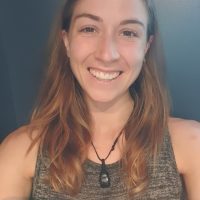View this post on Instagram
{*Did you know you can write on Elephant? Here’s how—big changes: How to Write & Make Money or at least Be of Benefit on Elephant. ~ Waylon}
~
*Note: Remember, Elephant is not your doctor or hospital. Our lawyers would say “this website is not designed to, and should not be construed to provide medical advice, professional diagnosis, opinion, or treatment to you or any other individual, and is not intended as a substitute for medical or professional care and treatment.” But we can’t afford lawyers, and you knew all that. ~ Ed
~
I grew up in a household where my father and I were both undiagnosed with bipolar disorder (among other things).
At the age of 12, I planned to take my own life, however no one, not even my family, was remotely aware. Thankfully, I never acted on it, however I suffered in silence for many years.
Through my teenage years, I moved in and out of depressive episodes, felt crippled by anxiety and insecurity, and searched for love in all of the wrong places (using promiscuity, and chasing the bottom of an underaged bottle).
When I was 17, I moved across the country for university, and right around this time, my dad received his diagnosis. A few months later, after being continuously questioned by my friends at Uni, I went to the walk-in clinic saying, “I think I might have ADHD.” If you’re seeking mental health help and advice, I do not recommend going to a random walk-in clinic! In about half an hour, I had “tested positive” for anxiety, depression, and ADHD. Now, I was already aware that I had struggled with anxiety and depression even without any formal testing, but this confirmation, along with another disorder that wasn’t even on my radar, did not feel good.
I completely stigmatised myself, thinking I had to wear the label “mentally ill” on my forehead, and it became my biggest fear in the world that I too have bipolar disorder. I was so afraid of the potential within my own mind (total Elsa moment, conceal, don’t feel, don’t let them know…it’s no wonder “Frozen” is still one of my favourite movies).
When I was 19 years old, two days before leaving on a year-long study abroad trip to New Zealand, I experienced my first manic episode. This confirmed my biggest fear; I too had bipolar disorder, but it didn’t change who I was, and it certainly didn’t mean I was going to become a scary monster.
Having faced my biggest fear in the world and learned that I was absolutely fine (after some brief time with the psychiatrist in the Vancouver hospital that I took myself too), I became obsessed with facing my fears, and even more so with learning how to naturally heal my mind. I said no to the traditional route of medication, and instead went on a deep holistic healing journey.
A couple of years of trial and error, a yoga teacher training course, a few neuroscience and psychology courses, and applying all of my learnings to my life, and I hadn’t experienced another manic or depressive episode. I realised that while healing takes dedicated, consistent effort, it really isn’t complicated, and essentially involves all of the things that we recognise as important aspects of self-care; yet many of us fail to truly embody the practices.
For me, this meant my self-care routine became my number one priority. I could no longer go to the bar and binge drink until 2 a.m. with my friends on a Friday because my bedtime was 10 p.m., and I wanted to feel good spending the day outside while the sun was up, moving my body, connecting with nature, and sharing these experiences with new friends who shared my new values.
It meant making sure I was feeding myself nutrient-dense foods so I could fuel my activities and maintain good gut health, which is so closely related to mental health. It meant accepting my emotions as they arose and finding healthy outlets for processing them such as journalling, moving my body, and simply expressing them.
It meant actively practicing mindfulness, checking in with what thoughts were serving me and what thoughts I wanted to let go of.
Most importantly, it meant cultivating a deep self-love practice and desiring to heal because I felt truly worthy of feeling my best, making decisions that would benefit me later, and showing up as my most authentic self.
None of the things I was doing were groundbreaking, new, or profound, but these simple changes had a transformational affect on my life.
It’s been over eight years since I’ve experienced mania, and I haven’t fallen back into depression, without using any pharmaceuticals to manage my mental health. Self-care is still my number one priority, and my entire lifestyle is built around the practices that ensure I get to feel my best.
I recognise that my journey is uniquely mine, but I also know that a lot of people are suffering and don’t know if true healing is even possible. I’m here to tell you that it is.
Healing does take consistent, dedicated, daily action, but it truly is as simple as giving yourself what you really need, and making decisions that will benefit you tomorrow.
It may not always be easy, but it really is simple, and it all begins when you decide it’s time to heal.
~
{Please consider Boosting our authors’ articles in their first week to help them win Elephant’s Ecosystem so they can get paid and write more.}








Read 1 comment and reply